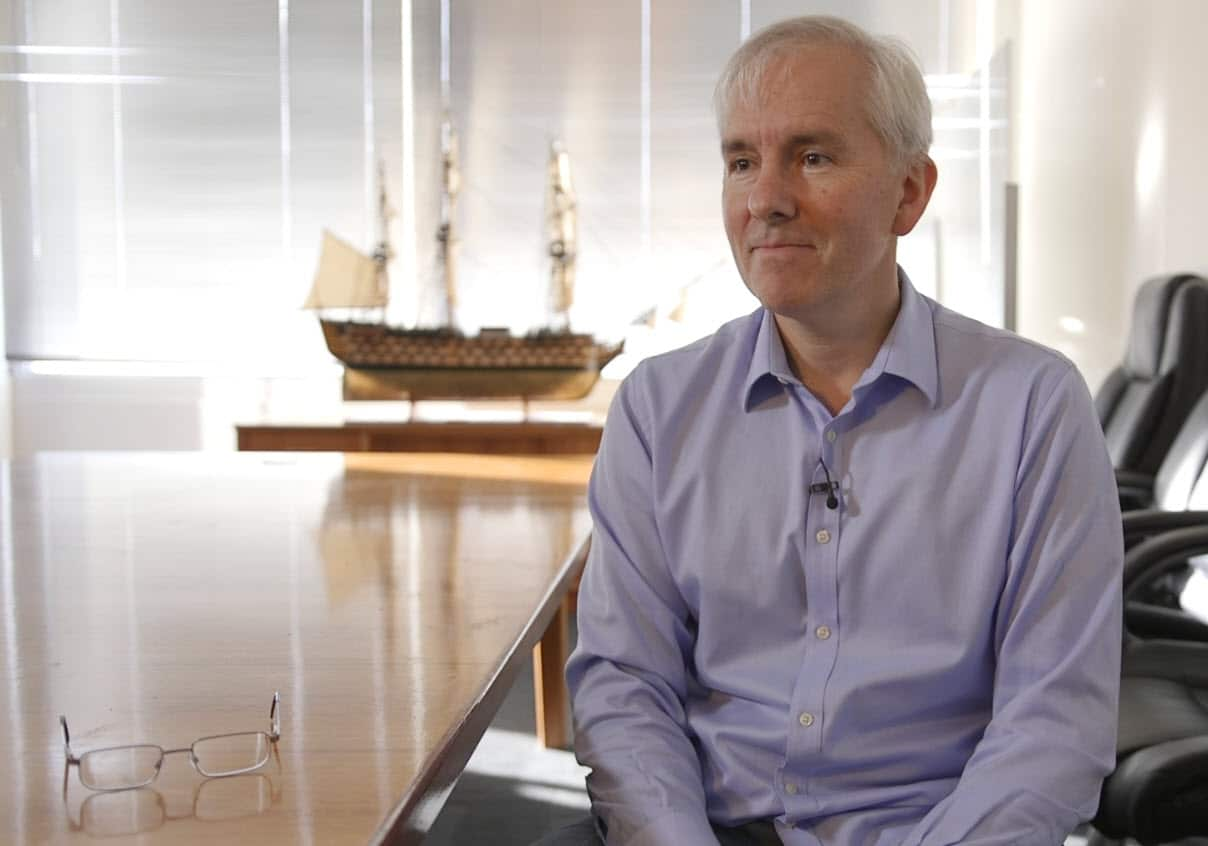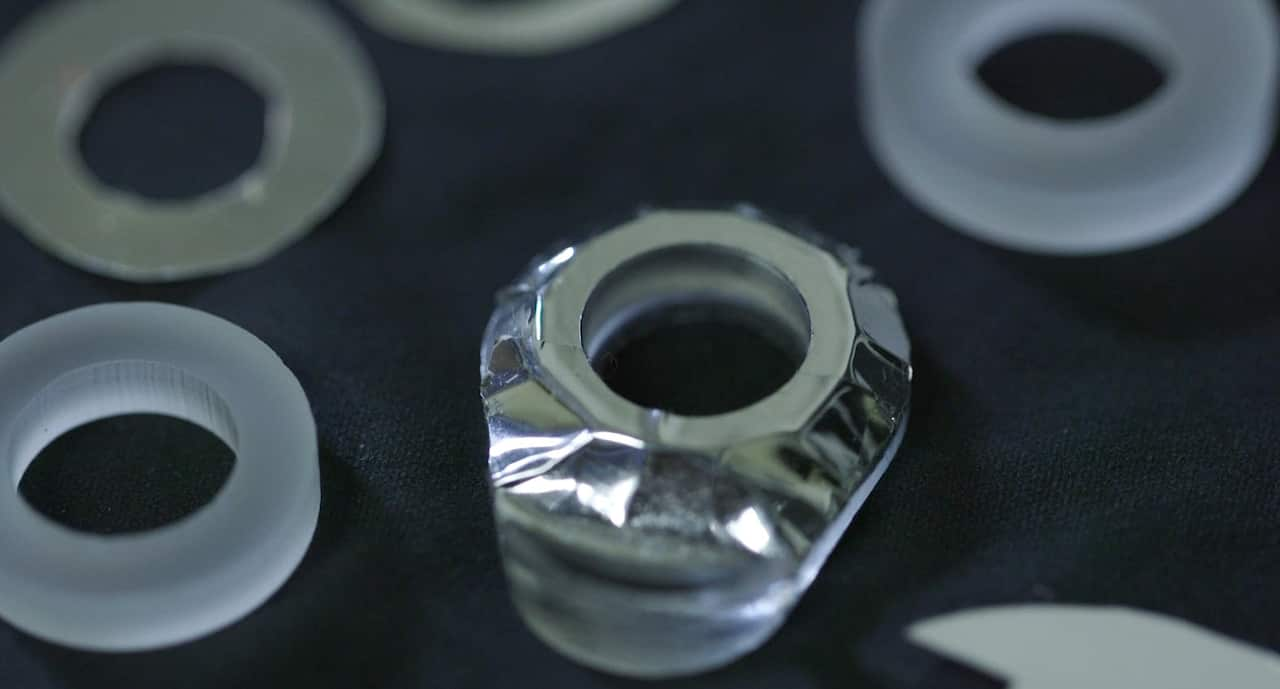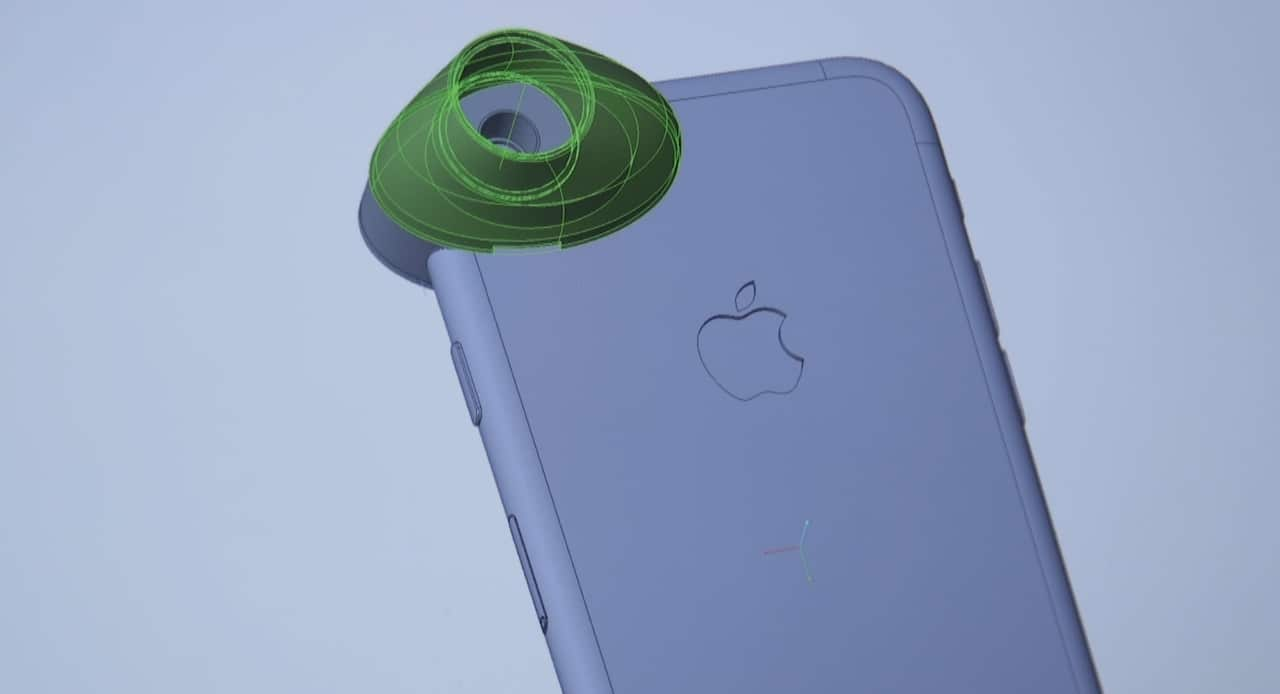Dr James Freeman has an ambitious goal - he wants to drastically cut the number of deaths from skin cancer. But it's not a treatment he's developing - it's a tool for more effective, easy and early detection.
"If you think about easy cancers to diagnose, one that's sticking out in front of you should be the easiest and yet we still have a thousand people a year dying from melanoma because it’s diagnosed too late," he says.
That's because many people delay getting checked. Taking time to see a doctor is inconvenient, especially in rural areas.
But what if your phone could help?
"SkinView is looking at democratising dermatoscopy, which is when a doctor uses a special magnifying device to look at someone’s skin to work out whether that brown mole is actually a skin cancer, or whether it's a harmless freckle that can just be left alone." The product has two components: a lens that clips onto your phone, and an app Dr Freeman hopes will eventually offer automatic diagnoses, based on vast datasets on skin cancer.
The product has two components: a lens that clips onto your phone, and an app Dr Freeman hopes will eventually offer automatic diagnoses, based on vast datasets on skin cancer.

Dr James Freeman at his office in Hobart. Source: Supplied
Costing around $50-100, the clip-on is a cheaper, more portable alternative to regular dermatoscopes, which sell for around a thousand dollars.
It's taken years of work, and hundreds of prototypes, just to get to this point.
"His key requirement was to have a device that was really low cost, almost disposable," explains Skinview’s R&D manager, Jon Everett.
"But it had to be totally self-contained, no batteries, using light source from actual phone itself. There are a number of problems that have to be overcome: one is that skin is very reflective, and the other big issue is getting very uniform light.
"We've tried various ways but I think we've finally cracked it." The SkinView lens is now ready for large scale production, with the team in talks with manufacturers in Israel.
The SkinView lens is now ready for large scale production, with the team in talks with manufacturers in Israel.

Parts of a Skinview lens. Source: Supplied
It’s one of SkinView's many international collaborations, with a lack of high-tech skills in Tasmania prompting Dr Freeman to look overseas.
"Our lenses come from Holland, there is an app guy in China, and three Russian mathematicians working on it," Dr Freeman says.
His co-founder, Sam Holt, is also based in Melbourne.
"Email and the internet have opened up notion that you can have a project where all the people don’t have to be in same office."
Funding and the future
But there are benefits to staying in Tasmania too: the cost of living and employing people here is cheaper.
The Tasmanian Parliamentary Secretary for Small Business, Roger Jaensch, says the state government says is working on programs to help startups thrive.
"It's still in early stages of planning but [we’re planning] an accelerator that hopes to assist local business entrepreneurs with ideas in the tech sector - and those from elsewhere who may want to work in Tasmania, to rapidly get to investment ready stage."
SkinView's own funding, around a quarter of a million dollars to date, has come through a mix of government grants, research prizes, and investment from James' and his co-founder's existing business. While SkinView isn't available for purchase yet, Dr Freeman says its path to market will be three-fold:
While SkinView isn't available for purchase yet, Dr Freeman says its path to market will be three-fold:

A computer rendering of the Skinview lens attachment. Source: Supplied
"First stage you simply put [the clip-on lens] hands of doctors and they use it to take dermatoscopic images. Second stage is you give them support software [with that]," which can offer information on possible diagnoses.
The third stage would involve software that's more advanced and capable of offering a more certain diagnoses.
It'll take more years of work, not to mention regulatory approval, to get to that point. But for Dr Freeman, SkinView's mission remains firmly front of mind.
"What I'd like to see for SkinView is that everybody around the world can attach a device to their phone in the privacy of their own home, have a look at their partner’s skin, their partner can have a look over them - and if there's a skin cancer there, we find it early, we cut it out, they don't die. That's a pretty good outcome."
Want to find out the secret to small business success? Tune into #BizSecretsSBS at Sundays 5pm on SBS, stream on SBS Demand, or follow us on Facebook, Twitter or Instagram.


